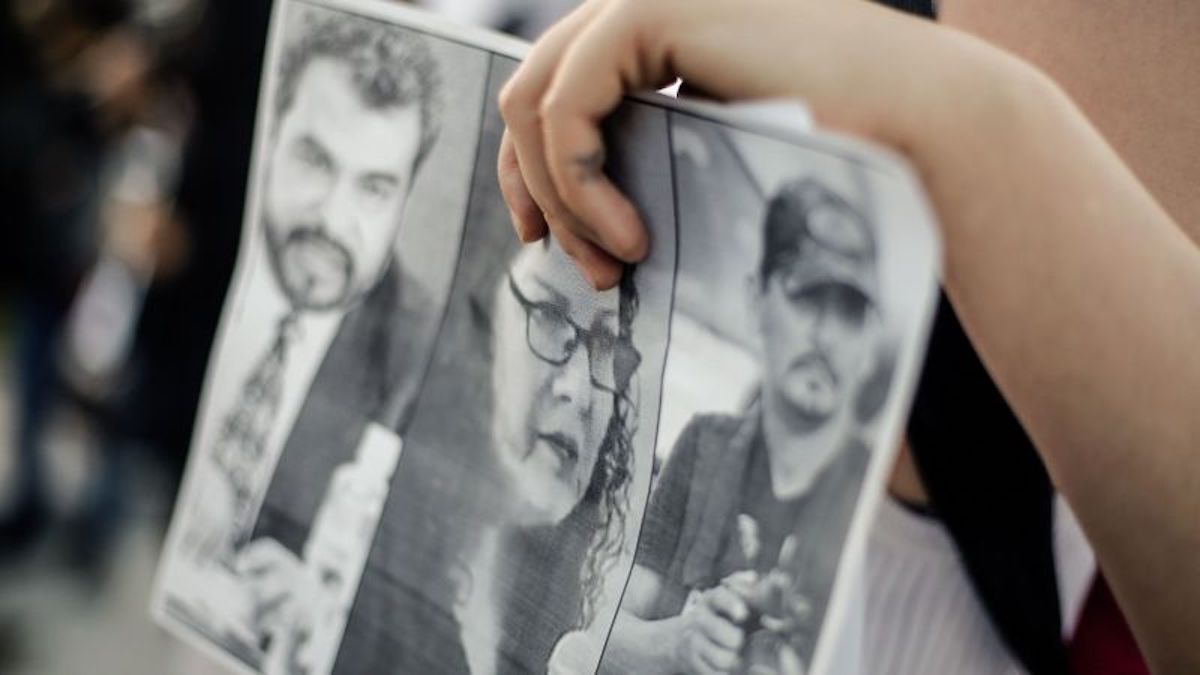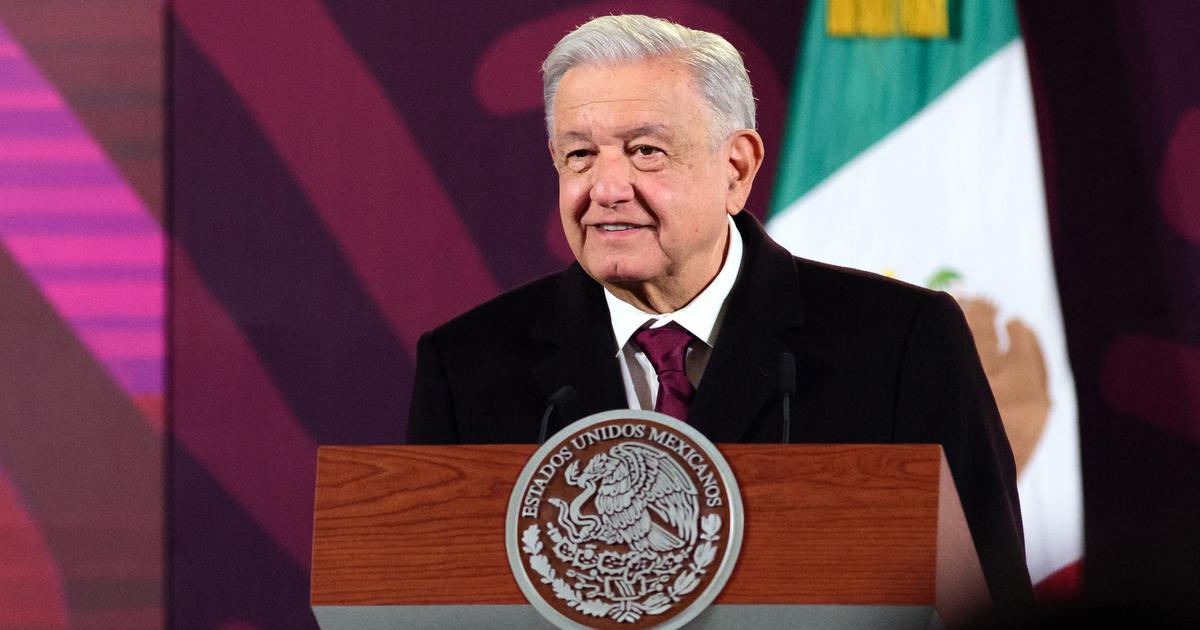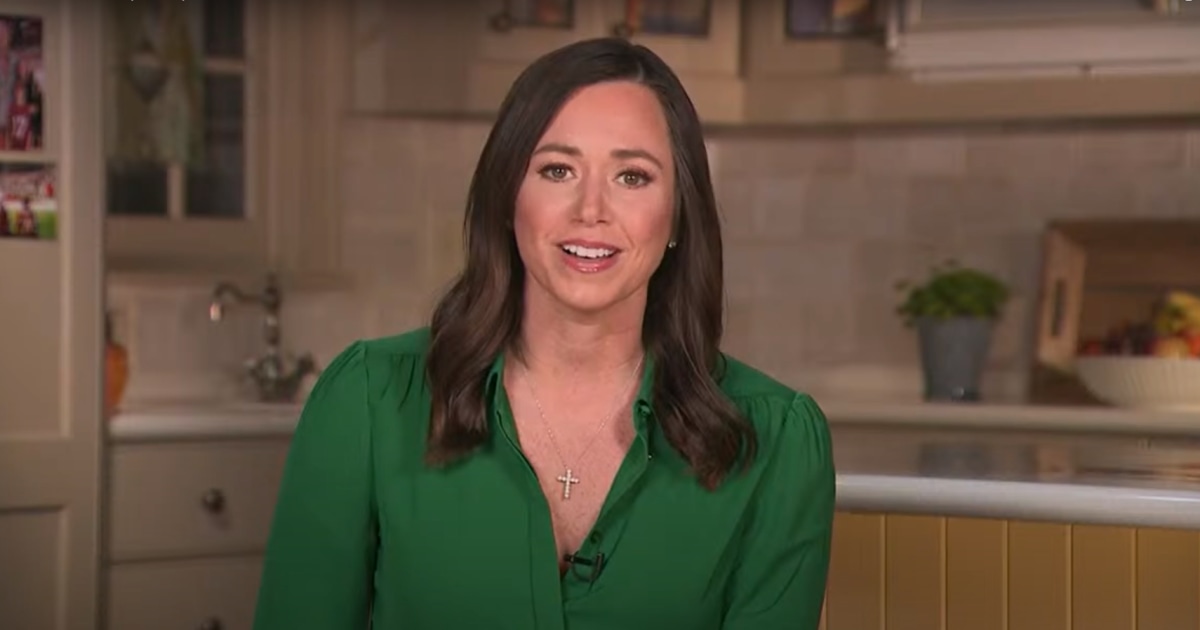"There are no consequences": journalists in Mexico fear for their safety 4:21
Tijuana, Mexico (CNN) —
We had to apologize for being late.
The traffic was horrible, we explained.
It was only after nearly an hour of shuffling through near-stop traffic on a Tijuana, Mexico highway that we saw the crash that caused the rush-hour roar.
Two vehicles, a pickup truck and an old four-door sedan, piled into a busy intersection.
The entire window on the passenger side of the truck was visibly blown out.
"That?"
said Jesús Aguilar, a journalist from Tijuana who covers the crime whom we arrived late to meet.
“Yeah, that's like the fifth crime scene today.
It's going to be a busy night."
US prosecutors accuse the former Secretary of Public Security of Mexico, Genaro García Luna, of threatening and bribing journalists who were investigating him
The driver of the truck was shot through the passenger side window at the intersection and crashed into the sedan as a result.
advertising
Stumble upon a crime scene is not uncommon in Tijuana.
In a country plagued by homicides, the city stands out.
More than 800 homicides have been recorded so far this year, according to city officials, and that's just counting documented murders.
Experts say the actual number of homicides is higher.
The state of Baja California, where Tijuana is located, is also notorious for disappearances.
If the past is any indication, many of those people will never be found, and are probably dead.
Crime reporters like Aguilar are surely always busy.
But they are also at extreme risk of becoming victims of the very crimes they are covering.
This year, 11 journalists in Mexico have been killed, according to the human rights group Article 19.
the night shift
Independent judicial journalist Arturo Rosales — who agreed to let CNN accompany him on one of his night shifts last week — is aware of that reality every night.
We meet in an empty park near the city's infamous red light district, where Rosales pulls up in a taxi he owns.
“If I have downtime between crime scenes, I bring people in,” he said.
"This job doesn't pay much."
Rosales' work depends entirely on what he listens to on a small radio that he keeps propped up on the car's console.
It is tuned to police and lifeguard frequencies.
We were with him for about five minutes before he got a call about a body found in a truck near a highway.
“We go to very dangerous neighborhoods to document these things,” Rosales said, as we sped toward the scene.
"Sometimes I get scared," he said.
Many of the murders in Tijuana involve organized crime fueled by cartels and gangs that have dominated life in many parts of Mexico for generations.
Simply coming close to such murders puts journalists at inherent risk, at risk of everything from being directly targeted for covering the crimes, to simply being in the wrong place at the wrong time.
Two police officers greet us at the scene of the murder.
They're holding the area until crime scene investigators arrive.
There are so many murders every day in Tijuana that technicians often take hours to arrive.
Rosales greets one of the agents: "What happened?"
The driver was shot in his car, the agent said, adding: "Stay behind this line but (photograph) whatever you want."
Rosales takes photos and broadcasts himself live on Facebook, clearly sticking to only the most basic data: the location, time and manner of death.
"I have not yet received threats from any cartel, because I am here to document the violent act and nothing else," he explained.
"I don't get into trouble or accuse any cartel, that's none of my business."
However, in the business of covering crime, that doesn't always protect journalists from harm.
"He taught me everything"
One of the first things that people say about the journalist Margarito Martínez is that he was a happy guy, who smiled more than the others, despite what he covered.
Martínez belonged to a small but well-known group of independent journalists who documented crime in Tijuana.
Every night he would go out with his camera and document scene after scene, largely just reporting basic facts.
The Government of Mexico says that an organized crime group is responsible for the murder of two journalists
On January 17, he was shot several times in front of his house.
Some of his closest friends and colleagues he had worked with came forward to document it.
Aguilar, one of Martinez's best friends, also went.
“That's what we do, we cover homicides.
Now I witnessed yours.
Margarito Martínez's wife, María Elena Frausto Granados (left), stands at the scene where her husband was shot to death in January.
"He didn't investigate anything," Aguilar said.
“Other journalists investigate these crimes but Margarito only reported basic facts.
He didn't deserve what happened," he said, adding: "He was a great friend... he taught me everything I know."
Ten people were detained by Mexican authorities in connection with Martínez's death.
Authorities said all 10 have connections to organized crime.
But authorities have yet to produce a specific motive for the murder.
Several of the 10 people arrested were eventually released.
None have been formally charged.
Several Tijuana journalists have told CNN they know exactly why Martinez was killed and have offered various theories, including that Martinez had been falsely accused of sharing information about the family of a local crime boss.
CNN cannot independently verify that information.
Attacks and impunity
Journalists in Mexico raise their voices again for justice 2:37
This particularly violent year for Mexican journalists has sparked outrage throughout the country and within the media itself.
Critics say the Mexican government is unable or unwilling to protect journalists, just as it is apparently unable to curb the high levels of violence in society as a whole.
“Look how many of us have been killed,” Aguilar said.
“They say there is no such level of violence, but that is nonsense.
Pure lies".
Aguilar is referring to the federal government, headed by President Andrés Manuel López Obrador.
López Obrador has regularly said that his government protects journalists.
“In each of these cases (of murdered journalists) there are already people detained and there is no impunity,” López Obrador said at a press conference earlier this year.
Inter American Press Association condemns attacks on journalists in Mexico, Guatemala, Honduras and El Salvador
However, official data paints a different picture.
More than 90% of crimes in Mexico go unsolved, according to the federal government's own statistics, and the vast majority of homicides in which journalists have died are no different.
"Whatever the threats, the obstacles to their work, whoever kills a journalist, there are no consequences because we live in a country of impunity," Sonia de Anda, a Tijuana-based journalist and press freedom advocate, told CNN.
She argues that this culture also encourages criminals to commit violence against journalists simply for doing their jobs.
Critics say the president's narrative also contributes to the violence.
López Obrador often criticizes members of the media, attacking them personally for coverage he doesn't like about him and labeling some as enemies of the Mexican people.
A demonstrator demonstrates against the murder of three journalists, José Luis Arenas, Margarito Martínez and Lourdes Maldonado, in January.
Such rhetoric, de Anda noted, creates a climate in which violence against journalists becomes more likely, if not encouraged altogether.
"We have a president who attacks freedom of expression," said de Anda.
“He invites his followers to attack those journalists when they disagree with him.
And then comes the violence.
It's the worst we've seen."
A journalist, who asked CNN not to reveal his name for security reasons, told CNN: "It's been very difficult for some of us lately, the mourning, the fear, the pressure."
Rosales said everyone feels that way these days.
It's not hard to see why.
We accompanied him to several other crime scenes that night, in some of Tijuana's most dangerous neighborhoods.
In each, the police presence is limited, with a few people standing and watching.
They are probably observers, called pointers, who work for certain cartels and watch what happens at crime scenes, Rosales explained.
“I just do my job openly and honestly and then I'm gone.
But it can be scary,” she commented.
In that 24-hour period, 15 homicides were recorded in Tijuana, marking the most violent day of the year for the city so far.
It is only a matter of time, Rosales said, before another journalist becomes another victim.
Assassination of journalistsFreedom of Expression






/cloudfront-eu-central-1.images.arcpublishing.com/prisa/CQSZWCMFFEISWLLJKA76I3TGKA.jpg)








